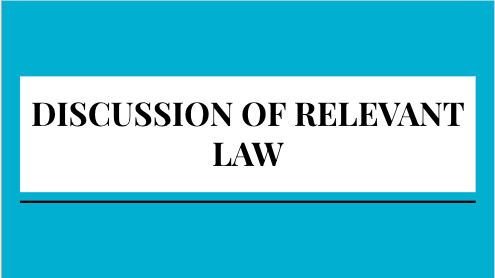- · 4717 friends
Appellants Seeks Property Settlement

Eden & Eden [2022] FedCFamC1A 178 (27 October 2022)

The primary judge dismissed the appellant’s Initiating Application seeking property settlement for want of jurisdiction. The appellant had already been granted leave by another judge to bring her claim out of time. The Court, in resolving this dispute, relied upon s 44(6) of the Family Law Act 1975 (Cth).

Facts
The parties were in a de facto relationship from some point during 1989 until they separated on 22 November 2007. However, the appellant contended they reconciled in about October 2008 and the relationship endured for several more years, which assertion the respondent refuted.
There was some uncertainty about when the appellant alleged the relationship finally broke down, though it is unclear whether the appellant gave inconsistent evidence or the primary judge was confused. The appellant pleaded in her Initiating Application the relationship broke down in November 2013, but in the reasons for judgment the primary judge referred interchangeably to December 2012, December 2013 and December 2014.
Even on the appellant’s best case, her application for property settlement relief filed in August 2017 was brought outside the limitation period and so the first form of relief she sought was the grant of permission under s 44(6) of the Act to bring her claim out of time.
The respondent filed his Response on 29 September 2017, seeking dismissal of the application with costs. He maintained the relationship broke down in November 2007 and did not resume. Though he admitted a subsequent period of their common residence for some years, he disavowed any resumption of the relationship.
The respondent’s contention raised a jurisdictional issue because, if the de facto relationship finally broke down before 1 March 2009 as he alleged, the Court was bereft of jurisdiction under Pt VIIIAB of the Act and could neither grant the appellant leave to bring her property settlement application out of time nor any substantive relief.
The presiding judge concluded that the parties were in a de facto relationship between some time in 1989, commencing with co-habitation in [City AM], and concluding on 22 November 2007; that at no time after 22 November 2007 did the [Appellant] and the Respondent have a relationship as a couple living together on a genuine domestic basis; and that the Court therefore does not have jurisdiction to entertain the [Appellant’s] application for property adjustment orders under section 90SM of the Family Law Act and her application must be dismissed.

Issue
Whether or not the Court had Jurisdiction and if so, whether appeal should be granted.

Applicable law
Evidence Act 1995 (Cth) s 191 - provides that "agreed fact" means a fact that the parties to a proceeding have agreed is not, for the purposes of the proceeding, to be disputed.



Analysis
Parties are bound by the way in which they conduct their cases and these parties mutually conducted the original litigation on the premise that their de facto relationship existed at, and subsisted until sometime beyond, 1 March 2009.
Jurisdiction to entertain the appellant’s substantive property settlement claim was therefore established, there being no dispute over any other jurisdictional fact which ss 90SB and 90SD of the Act required be satisfied.
The primary judge observed how the order made under s 44(6) of the Act granting leave for the appellant to proceed with her substantive claim could not cure an absence of jurisdiction (at [21], [34] and [50]), but that observation requires some qualification. There was no need to cure any jurisdictional lacuna here because the parties formally conceded the necessary jurisdictional facts.
It was not open to the respondent to adduce evidence contradicting the jurisdictional fact he formally admitted earlier in the same proceedings, at least without leave, which was neither sought nor given (s 191 of the Evidence Act 1995 (Cth)).
Neither the primary judge nor the respondent was precluded by the principle of “issue estoppel” from re-revisiting the issue of jurisdiction at the hearing, as the orders made in April 2018 were interlocutory in nature and did not finally resolve the issue of jurisdiction between the parties in the form of an anterior final judgment.
Unless and until the parties were released from their binding concessions in the proceedings, the primary judge could not go behind the orders made by the other judge in April 2018.
There would have been no impediment to his Honour dismissing the appellant’s substantive application for property settlement relief on merit, but her application could not be dismissed for want of jurisdiction due to a finding of the relationship’s breakdown before 1 March 2009, which was the express premise for the dismissal order.
Conclusion
The appeal is allowed. Save for the consent orders made on 18 October 2022, the Application in an Appeal filed on 29 September 2022 is dismissed. The proceedings are remitted for re-hearing by a judge other than the primary judge.

















